Existing User Log In
New User Registration
Register for a free account to gain full access to the VGChartz Network and join our thriving community.



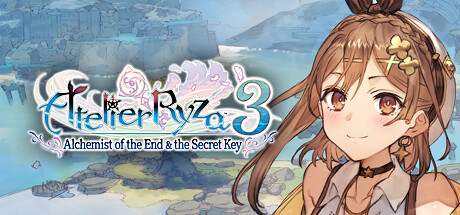

America - Front
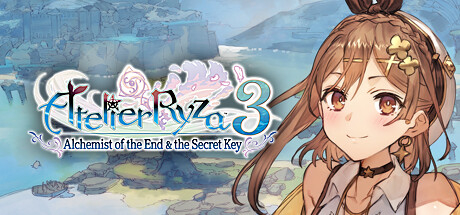

America - Back

Gust
Role-Playing
 (Add Date)
(Add Date) (Add Date)
(Add Date) (Add Date)
(Add Date)
| Owners: | 0 |
| Favorite: | 0 |
| Tracked: | 0 |
| Wishlist: | 0 |
| Now Playing: | 0 |
By Thomas Froehlicher 29th Apr 2023 | 3,163 views
Those who read my reviews know that, despite being an ardent follower of the Atelier RPG series, I'm no fan of the Ryza chapter (now trilogy). I remained dubious after the reveal of Atelier Ryza 3: Alchemist of the End & the Secret Key, since I felt the series was back on the right track with Atelier Sophie 2. However, maybe that brief pause on the Ryza series gave Gust some time to consider and improve, because this third entry isn't the collapse in series quality that I had feared it would be.
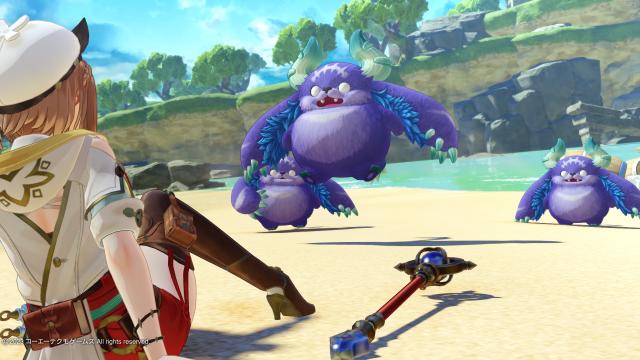
After her virtually meaningless adventures around the kingdom's capital in the second installment, Ryza is back in her home town of Kuken Island. But of course, something goes wrong; an entire archipelago has surfaced a few miles away and jeopardizes the stability of the Kuken island (which is artificial). Firmly deciding to protect her home, Ryza embarks on a new journey to investigate the new Kark isles, and this will eventually lead her to discovering an ancient civilization.
Even if I wanted to spoil readers of this review, I could hardly do so given the confusing writing and dragged-out pace of the story in Ryza 3. It's so hard to even grasp the logic of all that happens between the start of the game and the final dungeon that, towards the end, I started going through the dialog as quickly as possible. Most of the narrative development relates slightly to the Kark isles, and watching Ryza study old stone tablets and crystal balls while muttering unintelligible rocket science isn't especially exciting. The plot seriously lacks depth.
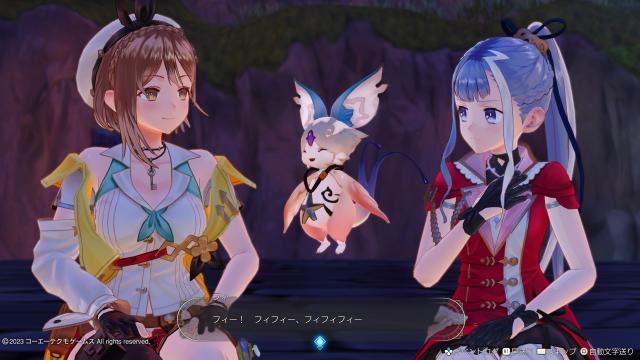
Not only that, but Gust notably once again stuffed the game with needless emotionalism. There are even more cheesy love stories than in the previous entry, which is irritating because it's light years from the mood of the more traditional Atelier titles. And there are also more weepy sequences with Fy, the small creature from the second game; I honestly thought they would leave that behind, given the silly pet breeding adventure Ryza 2 ended up becoming.
Originally, Atelier was about running an alchemy shop. It's a management series with RPG elements, where you do business, monitor your inventory, and study alchemy, all while leveling up from time to time. How could they alter the series so much and fans be OK with it? Since Ryza has appeared, the very concept of "shop management", which was the heart of the series, has all but disappeared. It's not the same anymore, and Gust should clearly state if its intention is to retain or kill off that traditional Atelier emphasis altogether.
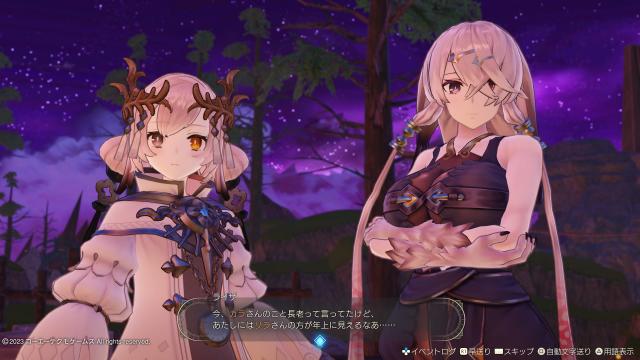
Yet some effort is made to alleviate the boredom of the main story. Ryza 3 boasts the highest character count since Atelier Firis in 2016, and also an impressive number of character events. Kara, the elder of an Oren tribe in the "other world", as well as the official return of Ampel and Lyla (the "mentor" figures in the original Ryza), give a different take on character interaction. Kara has a mystic aura and is very fun away from her homeworld. A lot of emphasis is put on Ampel's past, which is both deeply interesting and introduces a more serious tone to the game - something that was severely lacking in Ryza 2. It's safe to say he and Lyla should never have left the party. So there are more characters, more varied profiles and personalities, and greater character depth. In that respect it's closer to what I've been used to and expecting from Atelier.
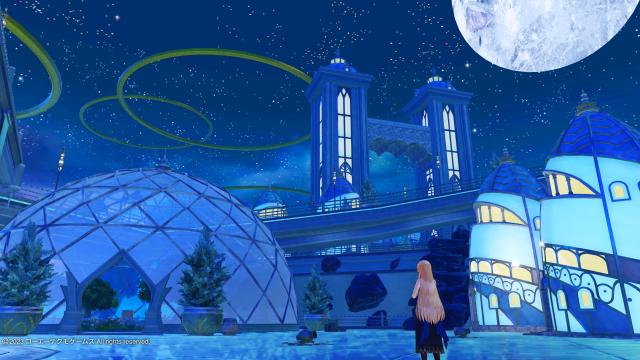
Another genuinely pleasant surprise is the quality of the world. It's not totally "open", but it has four very large regions and is considerably bigger than all previous Atelier games except Atelier Firis. There are several cities, numerous ateliers, and quite varied & sometimes aesthetically sophisticated landscapes. The level of progress between entries is stunning in terms of visuals and scale. But of course, size is nothing without good content. In that respect the conclusion of Ryza's adventures comes with a record number of quests. Like Firis in its time, there's a new quest on nearly every corner and this proves quite motivating. There are also plenty of different quest types: sometimes someone in the party will require an alchemic item, another might just want to hang out, you may encounter NPCs who wish to trade, a boss monster that needs to be defeated, new landmarks to reach, and so on. There are a lot of things to do. It's a far cry from the barebones game structure of Atelier Ryza 2, and that's a major positive.
The soundtrack feels quite entertaining this time around, with surprising (and surprisingly good) dark themes, as well as a few solid symphonic compositions, which are mainly played on the world map. The battle themes fail to impress however, especially compared to Atelier battles themes from before 2018. Also, while I'm touching on artistic themes, there's a scarce amount of artwork once again. Wouldn't the "fastest-selling Atelier" call for more investment in this area, rather than less?
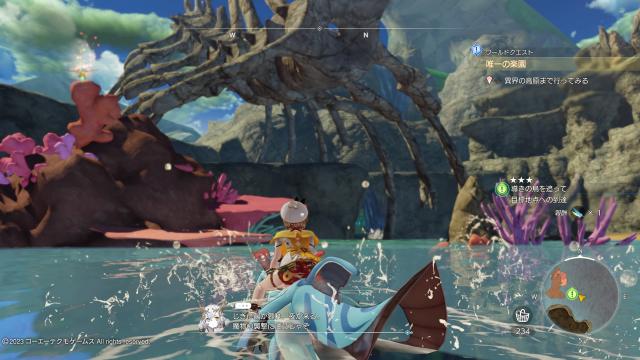
Another aspect I personally enjoyed is that the game doesn't guide your hand too much. After a tutorial period, it leaves you to your own devices in terms of progression. The principle objective remains the same: quest, use alchemy to craft objects (especially combat gear), and overcome fierce bosses. But the high level of freedom invites you to explore every little place and think about how to make the best items in your alchemy cauldron. For example, making better harvest tools is key to victory - higher quality tools mean rare and effective ingredients, and ultimately more powerful gear - but you have to figure this out by yourself, by tirelessly exploring, analysing each item, and remembering various locations. The world is big and some items are only found in limited & very remote locations. The high levels of complexity and freedom make for a more enjoyable experience, and are again strongly inspired by Atelier Firis.
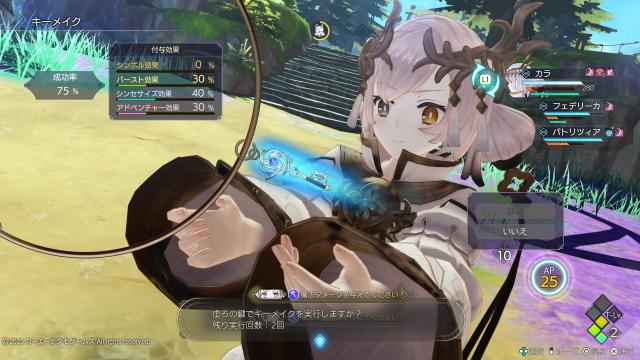
Progressing through the extensive skill tree is a huge part of this giant puzzle, because that's how you unlock important recipes and capabilities. But it consumes a great deal of skill points (SP), which are mainly gained through quests, so you look for more quests, and so on; the whole gameplay loop quickly becomes very enticing. As you can guess from the title, keys are a major gameplay feature. You can easily make keys from landmarks or enemies, and later use them to open chests or locked areas, but they have even broader uses in alchemy, as I'll discuss below.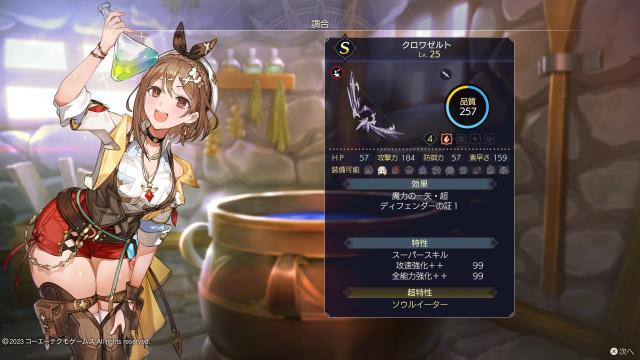
Alchemy hasn't changed much between releases, and probably didn't need to as the system was already close to perfection in Ryza 2. Recipes are represented as chains of ingredients. You usually need two or three key materials to make the desired output, but if you can fill all of the dots the item becomes much better and will possess superior properties. Each dot requires a certain number of element points (fire, ice, wind and lightning), which makes the system very progressive. At first, you find materials that have zero or one point in any element, so you can't advance far in the recipes (the number of "throws" in the cauldron being limited), but if you find the right skills and master the complex quality system, you'll ultimately produce superb equipment.
Roughly similar to Ryza 2, weapons, armor, and accessories can inherit "ultra" skills, which rarely show up on ingredients (the material shines in such a case). Ultra skills give you an ultimate edge in combat, like draining the enemy's HP or a 50% boost to skill power. The race for power is as visceral as ever, but the progression curve is perhaps more concretely and pleasantly felt than ever before. Previous "quality of life" features conveniently return too, such as duplicating existing items.
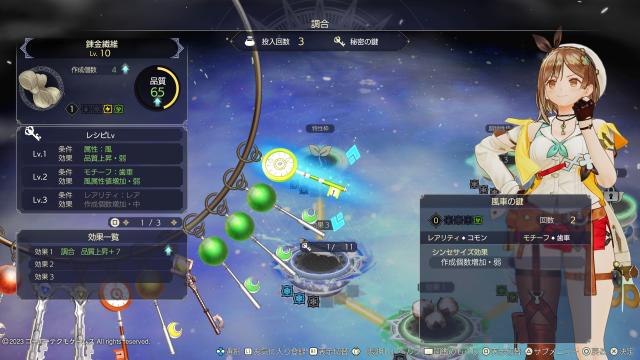
Alchemy is where the keys serve the most. Before pouring the last ingredient, you can activate one key to help you get a better product. Keys are ranked by rarity, from common to super rare. The rarer the key, the more effect it will have on your recipe. There's quite a wide range of possible outcomes, from increasing quality to getting one more "turn" for pouring ingredients. Keys can also grant stronger stats to equipment or boost one element of the recipe. Alchemy isn't revolutionized in this entry, but keys add that one little plus to make it even more addictive.
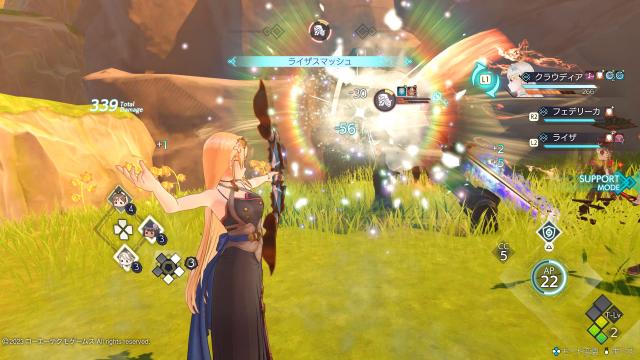
Nothing has really changed in terms of battles either, but unfortunately they were far from perfect last time. In Atelier Sophie 2 and many others before it, combat was turn-based, rational, and tactical. Ryza 3 pursues a fast-paced, action-oriented style that ironically leaves little interactivity to the player. You mainly push circle and then R1 plus PlayStation buttons to unleash the four skills for your current character (each character has only four attack skills). There are still requests from allies (deal a physical or magical attack), and if you meet their demand they perform an additional attack, but the requests always adapt your current character anyway. For example, if I play Frederica, they will always ask for magical attacks, which are her speciality. So spamming your skills is all you have to do; it could never be considered highly interesting.
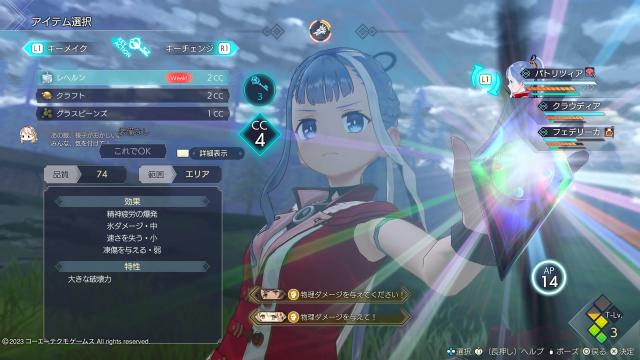
True, there is a little more to battles than that. Enemies are tougher than before, which pushes you to build a solid item strategy. There's therefore a lot of alchemic work involved to craft bombs and healing items in order to cope with every situation. Keys have their utility in combat too; not only can you equip them as extra equipment, but your playable character can also summon one key to temporarily boost their abilities in battle. It's pretty flashy and cool to use. All of this makes Ryza 3 more interesting than its predecessor, but it's still very far removed from the excellence of the turn-based entries.
Atelier Ryza 3 hasn't turned me into a Ryza believer overnight, but the effort to make it better than Ryza 2 is genuine and noticeable. The world created by Gust is compelling this time around, and so is the progression system, thanks in large part to the amount of freedom given to the player. The level of challenge feels great too, although I would certainly like to see a better battle system. The solid gameplay base of the series clearly hasn't been lost, now Gust just has to choose if it wants to deliver a fun & compelling follow-up or more mushy drama.
After graduating from a French business school, Thomas felt an irresistible force drawing him to study Japanese, which eventually led him to Japanese Profeciency Test level 1 in 2012. During the day, Thomas is a normal account manager. But at night he becomes Ryuzaki57, an extreme otaku gamer hungry for Japanese games (preferably with pretty girls in the main role). His knowledge now allows him to import games at Japanese release for unthinkable prices, and then tell everyone about them. You may also find him on French video games media. Feel free to contact on twitter at @Ryuz4ki57









